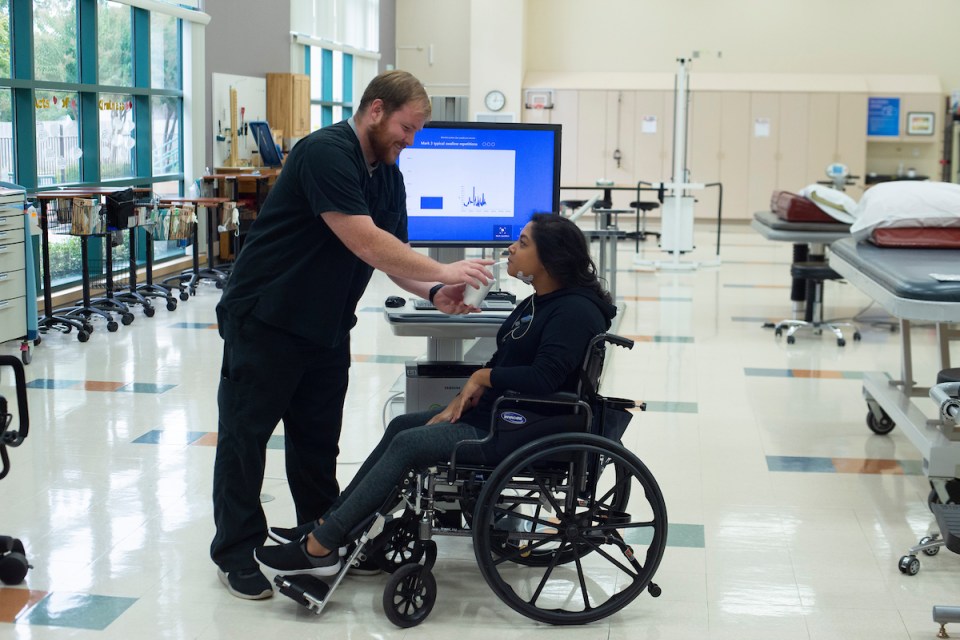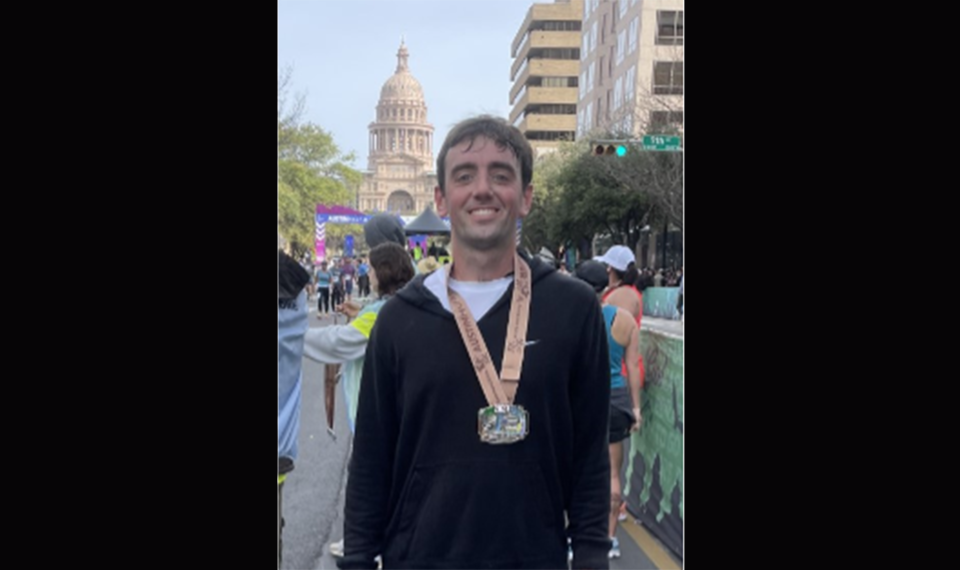After a brain injury, your doctor may recommend inpatient rehabilitation. While rehabilitation does not reverse the effects of a brain injury, it can help the brain relearn how to perform skills lost due to the injury.
Intensity of therapy
Neuroplasticity is the brain’s ability to change and adapt. After a brain injury, the brain will begin to rewire itself, forming new connections to compensate for the injury.
During the initial stages of recovery from a brain injury, intense therapy can maximize the benefits of neuroplasticity.
“In order to rewire your brain and make sure you are picking up the right habits and developing new neuronal connections, patients need high repetitions, as well as high frequency and duration,” said Mozghan Hines, director of therapy operations at Walton Rehabilitation Hospital, an affiliate of Encompass Health.
Implementing technology in your care plan
Research has shown that massed practice with high repetitions over 400-600 repetitions per day of challenging functional tasks can lead to changes in the brain, Hines said. Because inpatient rehabilitation hospitals offer at least three hours of therapy five days per week, patients have ample therapy time to achieve that threshold. However, achieving such high repetitions can be difficult without the help of robotic technology, Hines said.
Inpatient rehabilitation hospital have access to advanced technology that can help achieve the high frequency of therapy necessary to rewire the brain. Examples of technology used at Encompass Health rehabilitation hospitals includes:
- Bioness L300 and H200: These electrical stimulation devices re-educate muscles and reduce spasticity, helping patients improve movement.
- LiteGait treadmill training: The LiteGait simultaneously provides fall free environment and improves posture and balance to practice gait training.
- Interactive metronome: This training program promotes cognitive and motor learning through brain timing, rhythmicity and synchronicity.
- Vital Stim Therapy: A treatment for dysphagia using electrical stimulation to strengthen and reeducate swallow function to help patients able to eat regular food consistency.
Oversight of an interdisciplinary care team
Patients with a brain injury may experience a wide range of side effects that can affect cognition, functional mobility, fine motor activities, sequencing and emotional responses, as well as other medical complications such as difficulties regulating blood pressure and sleep disturbances.
Inpatient rehabilitation hospitals are required to provide an interdisciplinary approach to patient care—meaning specialists from many disciplines are involved in creating and implementing a patient’s care plan. At Encompass Health, interdisciplinary team members include physical, speech and occupational therapists, rehabilitation physicians, nurses, case managers, dietitians and pharmacists. All of these clinicians play a vital role in the care of patients with brain injury, Hines said. Below, Hines explains how some of these clinicians care for brain injury patients.
Therapists
Patients at inpatient rehabilitation hospitals receive at least three hours of therapy five days a week from physical, speech and occupational therapists, each working with patients on different deficits. This intensive therapy helps rewire the brain after brain injury.
Nursing care
Patients at inpatient rehabilitation hospitals receive around the clock care from registered nurses, many of whom specialize in rehabilitation. Nurses are available to monitor patients for any medical complications around the clock and report any changes to physicians and other members of a patient’s care team.
“I cannot emphasize enough the importance of nursing care,” Hines said. “Nurses have knowledge of what the patient is going through emotionally and medically. They are able to monitor patients to confirm their medical recovery is on track, and making sure any changes are communicated to the physician in a timely manner. They also play a vital role in educating the family members in the process of recovery.”
Overnight nursing care also means nurses are able to monitor patients for sleep disturbances—a common side effect for many brain injury patients.
Case management
Case managers coordinate the care during a patient’s stay at an inpatient rehabilitation hospital as well as they serve an integral role in setting patients/care givers up for success after discharge. Case managers help connect patients to support groups, home health and other community activities and can also help them navigate insurance.
“Insurance can be overwhelming,” Hines said. “Case managers can help patients understand their rights and what equipment and treatments they may have access to after they leave our hospitals.”
Choosing a provider
Choosing a provider for brain injury rehabilitation can add stress to an already overwhelming time for patients and their caregivers. To compare options, Hines suggests patients and their families discuss the following items with prospective providers:
- Age of patients treated
- Resources available
- Physician availability
- Frequency and duration of services
- Are services provided by licensed staff?
- Amount of time spent in therapy a day
- Availability of caregiver training
- When applicable, setting up home care and equipment ordering
- Capacity to provide seating and splinting options
For more information on brain injury rehabilitation offered by Encompass Health, find a location near you.
The content of this site is for informational purposes only and should not be taken as professional medical advice. Always seek the advice of your physician or other qualified healthcare provider with any questions you may have regarding any medical conditions or treatments.



